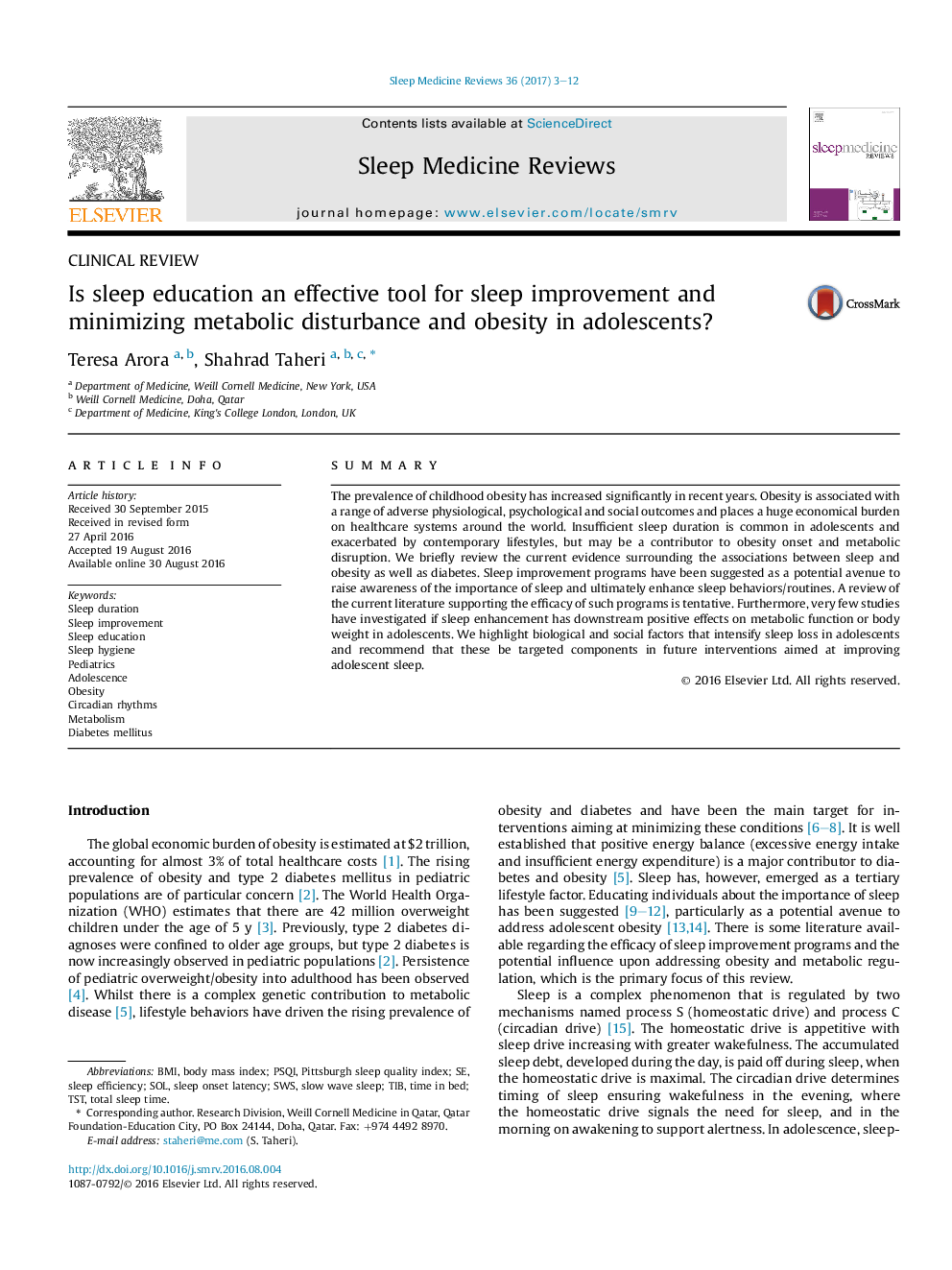| Article ID | Journal | Published Year | Pages | File Type |
|---|---|---|---|---|
| 8691127 | Sleep Medicine Reviews | 2017 | 10 Pages |
Abstract
The prevalence of childhood obesity has increased significantly in recent years. Obesity is associated with a range of adverse physiological, psychological and social outcomes and places a huge economical burden on healthcare systems around the world. Insufficient sleep duration is common in adolescents and exacerbated by contemporary lifestyles, but may be a contributor to obesity onset and metabolic disruption. We briefly review the current evidence surrounding the associations between sleep and obesity as well as diabetes. Sleep improvement programs have been suggested as a potential avenue to raise awareness of the importance of sleep and ultimately enhance sleep behaviors/routines. A review of the current literature supporting the efficacy of such programs is tentative. Furthermore, very few studies have investigated if sleep enhancement has downstream positive effects on metabolic function or body weight in adolescents. We highlight biological and social factors that intensify sleep loss in adolescents and recommend that these be targeted components in future interventions aimed at improving adolescent sleep.
Keywords
Related Topics
Life Sciences
Neuroscience
Neurology
Authors
Teresa Arora, Shahrad Taheri,
